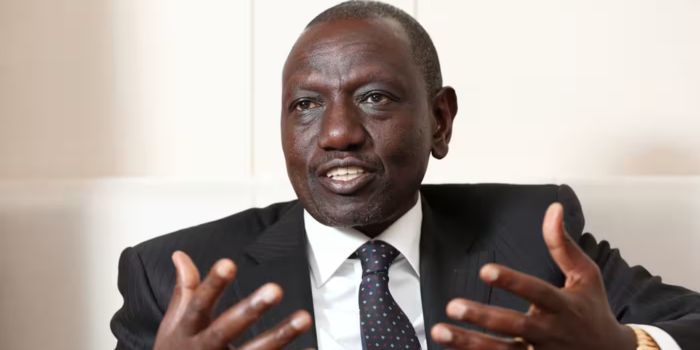Former President Uhuru Kenyatta's government faced significant financial strain, leaving a Ksh1.3 trillion repayment burden in the 2023/2024 financial year, compelling President William Ruto's administration to resort to extensive borrowing.
In a candid interview with Japan's Nikkei publication on February 9, President Ruto revealed the repercussions of the fiscal mismanagement, necessitating Kenya's reliance on further loans to offset existing debts.
Addressing concerns about repayment, particularly regarding China's USD6 billion loans and the Ksh321 billion Eurobond issued during Kenyatta's tenure, Ruto emphasized the need for diversified financing channels to avoid simultaneous repayment pressures and currency depreciation.
Initiating this strategy, Ruto secured a Ksh38 billion loan from India in Indian Rupees and inked a deal with Nippon Export and Investment Insurance (NEXI) for a Ksh80 billion yen-denominated Samurai Bond during his visit to Japan.
The repayment process commenced with Ksh10.8 billion in interest paid on the USD2 billion Eurobond in December 2023, followed by the buyback of the 2014 Eurobond. Subsequently, over Ksh72 billion was disbursed to China for various infrastructure loans, including the Standard Gauge Railway.
Despite the mounting debt burden, Ruto assured investors of Kenya's commitment to meeting its obligations without defaulting. To finance the repayments, Kenya turned to international financial institutions and increased taxation, sparking public discontent and denting Ruto's popularity.
Ruto underscored Kenya's robust relations with global financial bodies like the World Bank and the International Monetary Fund, highlighting their support in the country's development initiatives.
Since September 2022, Kenya has borrowed over Ksh2.4 trillion, primarily earmarked to settle debts maturing in the 2023/2024 financial period, signifying the government's proactive stance in managing its financial obligations amidst challenging circumstances.

